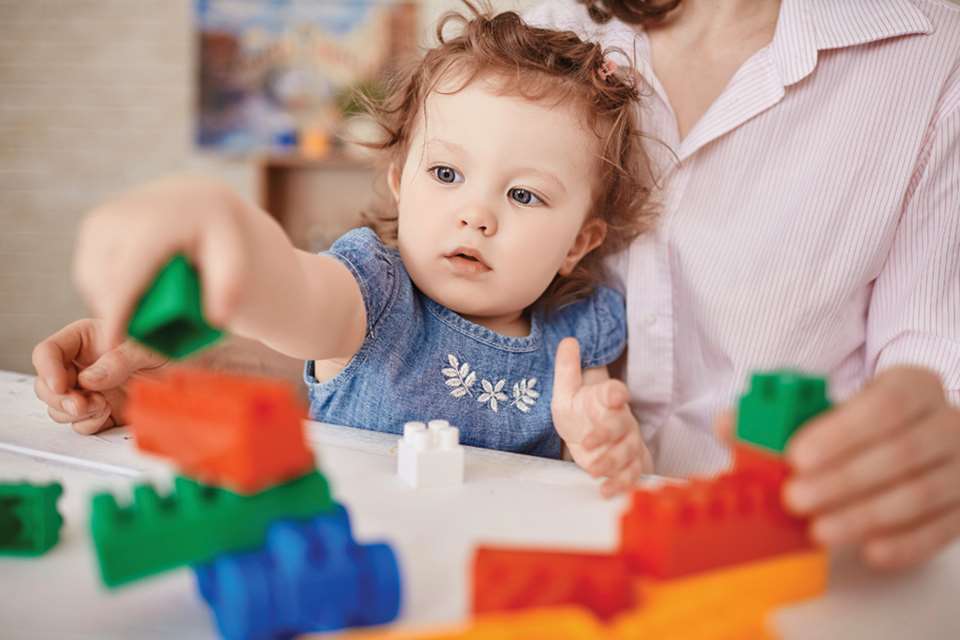A Unique Child: SEND Code of Practice - Shared thinking
Kay Mathieson
Monday, July 13, 2015
When faced with behavioural challenges, practitioners should embrace the opportunity to learn more about children and develop effective strategies to support them, says Dr Kay Mathieson.

Developing and maintaining high-quality provision is not characterised by an absence of problems, but a sensitive and effective approach to solving them.
Given the complexity of supporting children and their families, with the inherent stresses of parenting, along with running a secure childcare business supporting committed practitioners, it is inevitable that there will be challenges and problems along the way.
The recent TACTYC report (Georgeson et al, 2014) highlights the importance of continuing professional development and the need for settings to be a learning community for adults as well as children. Our approach to problem-solving is a key learning opportunity for all practitioners. Effective approaches to challenges require:
- articulating specific concerns
- shared sustained thinking between adults
- a holistic view of concerns -exploring from a range of perspectives
- reflection on relevant practice
- advocacy and positive intent towards all those involved
- use of an agreed hypothesis, rather than commitment to 'the answer'
- reflection on impact as additional opportunity for learning.
One of the most frequent concerns raised by practitioners relates to the progress children make, particularly in their learning about behaviour.
A CHILD'S BEHAVIOUR
Behaviour is viewed as more difficult to address than other learning areas, often because of the emotional response it invokes. We all have personal views about a child's behaviour, but our professional perspective must be grounded in our knowledge of child development and realistic expectations of each unique child.
The Early Years Foundation Stage (EYFS) statutory framework (DfE, 2014) gives clear guidance about the learning taking place for young children about behaviour and Development Matters (Early Education, 2012) gives further suggestions about the variety of ways that practitioners can support this area of learning.
As young children seek to understand 'how the world works', particularly in the realm of relationships with adults and peers, there will be misunderstandings and confusion. Learning about relationships at home is obviously a different context than a setting with professionals and unrelated peers.
When a child demonstrates behaviour that causes us concern, we experience a range of emotions ourselves, including frustration, anger, anxiety and feeling overwhelmed. Thinking together as a room team or whole staff, sharing ideas, views and opinions about the messages we want to give, is key to building professional confidence.
That confidence is not just about the strategies we use with children, but our understanding of the impact their developmental progress has on their behavioural understanding. This depth of knowledge provides the foundation for engaging parents and building a shared understanding of the child's behaviour. The journey begins during the admission process and is built on with daily conversation.
BUILDING A SHARED UNDERSTANDING
Gathering information
When a concern arises about a child's behaviour, our first task is to begin gathering information with colleagues and parents to try to understand the behaviour from the child's perspective.
As we analyse our findings, there are some specific elements to be explored:
- Identifying the concern - what exactly do we see happening, in what circumstance and why does it cause us concern?
- The exceptions - when do we not see the concerning behaviour?
- What is our factual evidence of the current frequency and intensity of the behaviour?
- Do parents have similar concerns? If yes, what strategies have they tried? If not, why?
Thinking about things from the child's perspective helps us recognise that being in a setting is very different for a child than any other context they might experience. Being at home with familiar adults, your own toys and belongings, consistent small numbers of - or no other - children, experiencing the variety of emotions demonstrated by others over extended time is unique to each child.
In contrast, in a setting context, there will be more children than adults - and those adults are professionals whose relationships will have a different quality to those at home, none of the toys belong to you, and the furniture and surroundings are usually more functional than homely.
In our exploration of the specific concern we are looking for breadth as well as depth of understanding about possible reasons for the behaviour. Our evidence will include:
- observations
- different adult's perspectives, including parents
- a holistic view of what is going on for the child
- characteristics of effective learning - how the child typically interacts with their environment
- developmental patterns of progress
- how the child demonstrates that they are anxious, relaxed, worried, excited, happy or sad.
It is tempting to focus specifically on the 'problem behaviour', but we can often learn more from times when the child is able to manage without demonstrating this behaviour. These exceptions should help us to identify the differences between these situations.
These differences give us evidence of the child's understanding of relationships and help us identify ways to give them the 'best possible chance' to extend this learning.
Hurting behaviours can be particularly emotive and divide adult opinions. However, collectively they are a means of communicating our emotions. Most hurting behaviours communicate either an increase in anxiety in a particular situation or a perceived threat from others.
Devising a strategy
Having analysed our concerns, the next step is to devise an effective strategy. Given our exploration and subsequent understanding of the child's perspective, our task is to detail the small next step in behavioural learning that needs to happen. For example, a child may:
- have only one way of making contact with others or joining others' play
- need adult support to solve sharing and turn-taking situations
- not feel secure in adults, interpretation of the emotions being communicated
- struggle to cope with the emotions associated, for instance, with arrival and departure of parents.
Our strategy will be based on our understanding of how the child learns - for example, demonstrating alternative ways of making contact, encouraging the child to notice when alternative ways of making contact are used between children, and supporting them to try out new ways of making contact.
Once a hypothesis about the concern has been devised and a strategy agreed with parents and colleagues, the implementation will need to be closely monitored. The quality of the intervention is crucial to success for the child. Colleagues can support each other to ensure implementation is as intended and be alert to any unintended consequences.
In most cases, if the strategy is implemented consistently for three weeks, there will be a change in the child's response. This may not be the change you had hoped for, but it will help you learn more about the child, amend your hypothesis, and adapt the strategy to increase its effectiveness. The process is a cycle based on the evidence, and not about introducing a completely different approach because the adults feel the current strategy 'has not worked'.
The success of this approach is enhanced if all the adults, including parents, recognise devising and implementing strategies as learning together about the child with clear links to their developmental progress.
Celebration
As strategies become tailored better to the child's characteristics of effective learning and developmental understanding, it is important to think about how we celebrate the success with the child.
We are supporting children to be life-long learners, with positive approaches to challenges, and confidence in their increasing ability to reflect, set their own goals and feel good about their achievements. Adults clearly model attitudes to learning and achievement in their responses to children, so it is important that we consider the messages we give and the likely impact on a child's confidence, sense of self and motivation. In our communication of success, the most effective principles to keep central to our thinking are:
- praising effort
- supporting positive approaches to new learning/problems
- encouraging autonomy and intrinsic motivation
- scaffolding a child's thinking as they begin to reflect on learning and progress (Moylett, 2013)
The coherence and continuity between supporting a child's problem-solving and how adults demonstrate positive approaches to challenges is clear. There is sometimes a sense that there is a quick fix to a child's behavioural response, but there are so many variables in experience, understanding and perception that this can't be the case. We often gather strategies that have had some success in the past; this can be a helpful starting point, but only by tailoring them carefully to the individual child and situation do we make them likely to succeed again.
MORE INFORMATION
Development Matters in the Early Years Foundation Stage (EYFS), Early Education (2012)
Inclusion in the Early Years by K Mathieson (2015), Open University Press
Learning and Teaching in the Early Years: active learning by H Moylett, H (2013), Practical Pre-school Books
Statutory Framework for the Early Years Foundation Stage Department for Education (2014)
Two-year-olds in England: an exploratory study, by J Georgeson, V Campbell-Barr, S Mathers, G Boag-Munroe, R Parker-Rees and F Caruso (2014), see http://tactyc.org.uk/research.








